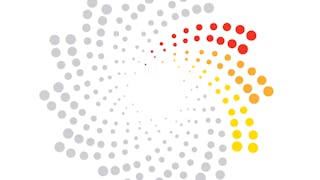This course introduces students to marketing analytics as a data-driven approach to solving real-world marketing problems. It covers four key areas: causal analysis (identifying cause-and-effect in marketing interventions), predictive modeling and AI (forecasting customer behaviors using machine learning), social media analysis (extracting insights from online consumer interactions through text and network analysis), and consumer demand and preference analysis (estimating preferences, demand, and customer lifetime value). Students will gain hands-on experience using Python to analyze diverse data sources, apply advanced analytics techniques, and generate actionable insights to support strategic marketing decisions.

Enjoy unlimited growth with a year of Coursera Plus for $199 (regularly $399). Save now.

Applying Data Analytics in Marketing
This course is part of Business Analytics Specialization

Instructor: Unnati Narang
24,544 already enrolled
Included with
(189 reviews)
Recommended experience
What you'll learn
Design experiments and apply quasi-experimental methods to identify and measure the impact of marketing interventions.
Use machine learning and AI techniques to forecast customer behaviors and marketing outcomes.
Analyze consumer sentiment and user-generated content through computational text and network analysis.
Estimate customer preferences and demand patterns, and calculate customer lifetime value to inform marketing strategy.
Skills you'll gain
- Advanced Analytics
- Analytics
- Predictive Analytics
- Social Network Analysis
- Customer Insights
- Customer Analysis
- Marketing Effectiveness
- Marketing Analytics
- Marketing
- Digital Marketing
- AI Personalization
- Machine Learning
- Generative AI
- Data Ethics
- Predictive Modeling
- Data Analysis
- Text Mining
- Marketing Strategy and Techniques
- Customer Retention
- Market Analysis
Details to know

Add to your LinkedIn profile
5 assignments
See how employees at top companies are mastering in-demand skills

Build your subject-matter expertise
- Learn new concepts from industry experts
- Gain a foundational understanding of a subject or tool
- Develop job-relevant skills with hands-on projects
- Earn a shareable career certificate

There are 4 modules in this course
In the first module, we will discuss analytics in marketing and delve into causal analysis, a crucial tool for analytics. We will begin with a comprehensive overview of why analytics is crucial for marketers, including the various types of data, the process of applying analytics in marketing, and the different types of analytics. We will then delve deeper into causal analysis.
What's included
14 videos7 readings2 assignments1 discussion prompt1 plugin
In this module, we explore how Artificial Intelligence (AI) and Machine Learning (ML) are transforming marketing practices—from predicting customer behavior to enabling hyper-personalization at scale. We’ll examine the fundamentals of prediction, how to build machine learning models, and how advances in tools like Large Language Models (LLMs) are unlocking new capabilities in areas such as segmentation, market research, and customer retention. You’ll also learn about the tradeoffs and ethics of AI deployment, including bias, transparency, and privacy considerations.
What's included
8 videos2 readings1 assignment
In this module, we explore how to make sense of the vast amounts of unstructured content that users and companies generate online—from product reviews and social media posts to Q&A threads and firm-generated promotions. You’ll learn how to pre-process text, extract insights using tools like sentiment analysis and topic modeling, and perform social network analysis to understand influence and engagement. We also examine how different types of content—user-generated, firm-generated, and AI-generated—shape brand perceptions and drive consumer behavior, while also discussing ethical challenges such as misinformation, bias, and fake reviews.
What's included
11 videos2 readings1 assignment1 peer review
This module introduces data-driven tools for understanding consumer preferences and forecasting demand. You'll learn how to segment customers, assess their long-term value, and apply choice modeling techniques like conjoint analysis to evaluate which product features matter most. We also cover customer lifetime value (CLV), how to calculate it, and how it guides investment in acquisition and retention. The module highlights the growing importance of incrementality in churn prediction and campaign evaluation.
What's included
8 videos4 readings1 assignment1 plugin
Earn a career certificate
Add this credential to your LinkedIn profile, resume, or CV. Share it on social media and in your performance review.
Build toward a degree
This course is part of the following degree program(s) offered by University of Illinois Urbana-Champaign. If you are admitted and enroll, your completed coursework may count toward your degree learning and your progress can transfer with you.¹
Instructor

Offered by
Explore more from Marketing
 Status: Free Trial
Status: Free TrialUniversity of Colorado System
 Status: Free Trial
Status: Free Trial Status: Free Trial
Status: Free TrialUniversity of Maryland, College Park
 Status: Preview
Status: Preview
Why people choose Coursera for their career




Learner reviews
189 reviews
- 5 stars
73.01%
- 4 stars
17.98%
- 3 stars
3.17%
- 2 stars
1.58%
- 1 star
4.23%
Showing 3 of 189
Reviewed on Aug 25, 2020
Very informative and nice presentation and interactive sessions.
Reviewed on Jan 3, 2021
Very informative. Good beginning to start the journey into analytics for marketers.
Reviewed on Jul 6, 2020
If the peer reviews were done faster it would be better

Open new doors with Coursera Plus
Unlimited access to 10,000+ world-class courses, hands-on projects, and job-ready certificate programs - all included in your subscription
Advance your career with an online degree
Earn a degree from world-class universities - 100% online
Join over 3,400 global companies that choose Coursera for Business
Upskill your employees to excel in the digital economy
Frequently asked questions
Once you enroll for a Certificate, you’ll have access to all videos, quizzes, and programming assignments (if applicable). If you choose to explore the course without purchasing, you may not be able to access certain assignments.
You will be eligible for a full refund until 2 weeks after your payment date. You cannot receive a refund once you’ve earned a Course Certificate, even if you complete the course within the 2-week refund period. View our full refund policy.
Yes! Coursera provides financial aid to learners who would like to complete a course but cannot afford the course fee. To apply for aid, select "Learn more and apply" in the Financial Aid section below the "Enroll" button. You'll be prompted to complete a simple application; no other paperwork is required.
More questions
Financial aid available,

